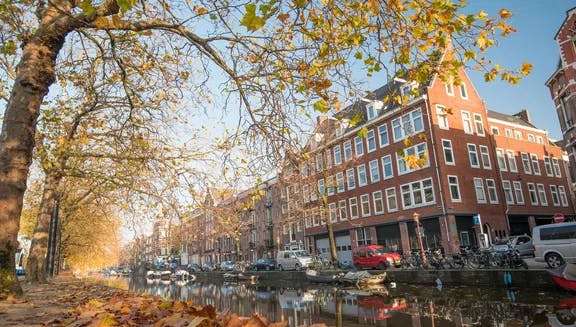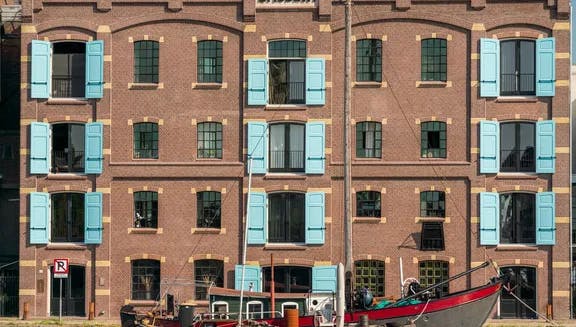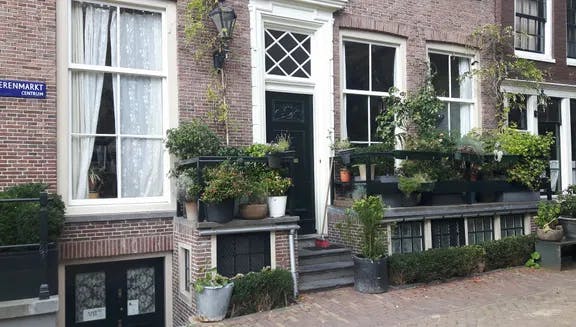
A guide to utilities in the Netherlands
Article provided by Utility Direct, an IN Amsterdam partner.
Setting up utilities
First things first: if you move into a new home, whether rented or bought, you will be able to use electricity, gas and water straightaway, without having to set up a contract first. If you are renting, all or some of your utilities may even be included in your rent: check your tenancy agreement and ask your landlord. If they are not, you still have plenty of time – usually four to eight weeks – to organise a contract with a provider before these services get cut off.
However, it’s advisable to set up a contract as soon as possible. For the initial period in which you don’t have an active contract, you will be billed directly by the network operators, and this is usually quite a bit higher than what a network provider would charge you.
To set up contracts with gas, water and electricity providers, you will need a Dutch bank account, though some providers also accept an IBAN number from another European bank account. In some cases, for example when you need an urgent energy contract for a rented home, you may also need to provide a copy of your tenancy agreement.
You usually cannot transfer contracts from previous occupants to yourself, and even if you could, this would mean you would lose out on discounts for new customers, and you may end up paying higher rates than those currently available.
It’s also worth noting that the Netherlands are working towards phasing out natural gas for heating and cooking in residential buildings, so if you live in a house that has been built very recently, you may be connected to a district heating network instead.
Meter readings and smart meters
When setting up your contract with your water provider, you will be asked for a meter reading (meterstand). The water meter is usually located in the meter closet or next to your boiler. It may also be in the toilet, bathroom or kitchen. Contact your provider if you are having trouble finding it. To submit your meter reading, copy the numbers in the black fields of the meter (including zeros); you can ignore the numbers in the red fields.
Gas and electricity providers will only ask you for a meter reading if your home doesn’t have a smart meter, which the majority of homes now do.
How to choose the best provider
The energy market in the Netherlands is liberalised, so there are many providers to choose from. Gas and electricity are usually offered in a package, and new customers can usually take advantages of welcome discounts if they sign up for a package deal. It is also possible to get separate contracts for gas and electricity, however. Other factors to look out for are whether the provider is reputable and whether they offer green energy.
With water, it’s a different story. Each region has one water company, so which one you use depends on where you live. For the Amsterdam Area, this is Waternet.
You can compare prices and organise your contracts yourself, but there are also services, such as Utility Direct, that choose the best available deals for you and set it all up. They will also help with switching providers or contracts.
How and when to pay the bills
Utilities are billed once per month. The bills include fixed supply cost (the standing charge), variable supply cost (per KW/h and per square metre of your home), your provider’s administration fee, a charge for your energy distributor (the company that owns and maintains the network) and taxes. Sometimes the distributor’s charges are billed separately.
If you don’t have a smart meter, your provider will check your usage after one year. If you have used more than their estimate, you will need to pay the difference; if you have used less, you will receive a rebate, meaning the provider will pay you back the amount that you overpaid. The same applies to your water bills.
If you don’t have a smart meter, your provider will ask you to submit an annual meter reading.
Switching providers or tariff
Changing your tariff is relatively straightforward – just adjust it from your dashboard in your provider’s app. If you want to switch providers, take a look at your contract. If you have a fixed contract and want to switch before it expires, you will need to pay a cancellation fee. Variable contracts are usually subject to a cancellation period of 30 days. You will need to cancel your contract yourself and arrange a new one starting 30 days afterwards. Find more information on switching contracts on the website of the Dutch government.
If you have any further questions or would like assistance with setting up your utilities or switching your contract, you can contact our partner Utility Direct. They can help with gas, electricity, internet, TV, water, mobile phone subscriptions and other services such as removal companies, furniture rental and insurances, and their services are free of charge.
Related articles

Tips on avoiding housing scams in Amsterdam

Overview of housing rights in the Amsterdam Area

Rent property in the Amsterdam Area

Buy property in the Amsterdam Area

Why buy rather than rent a home in the Netherlands?

8 steps to buying a house in the Netherlands

6 insider secrets for securing a Dutch mortgage

How to transfer a mortgage

Apartment owners’ associations (VvE)
